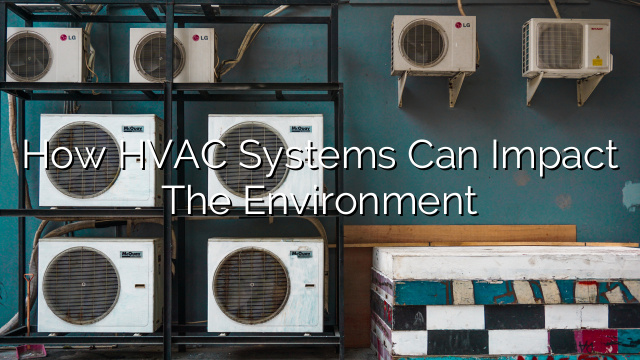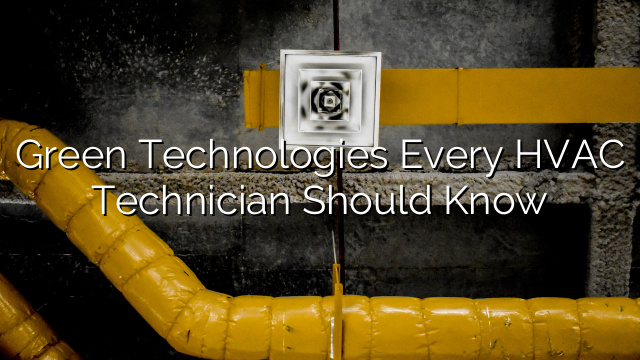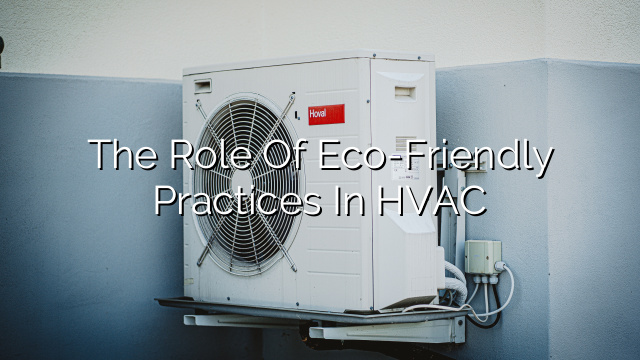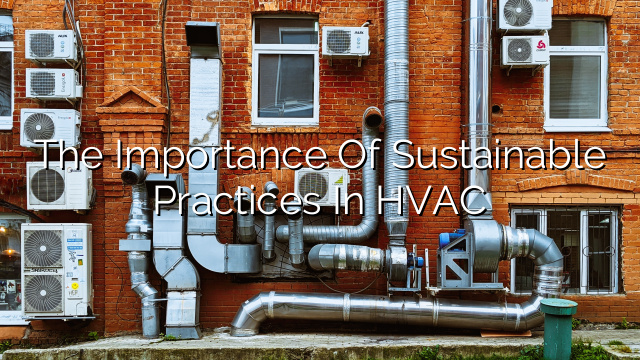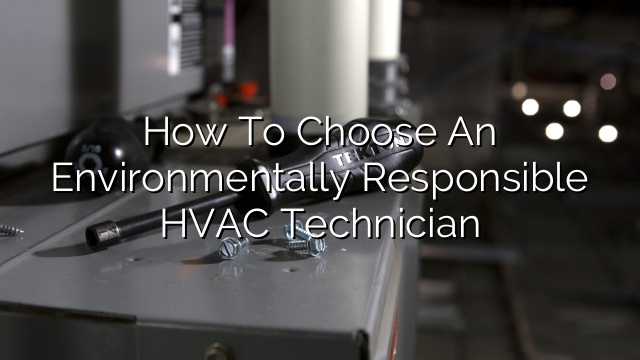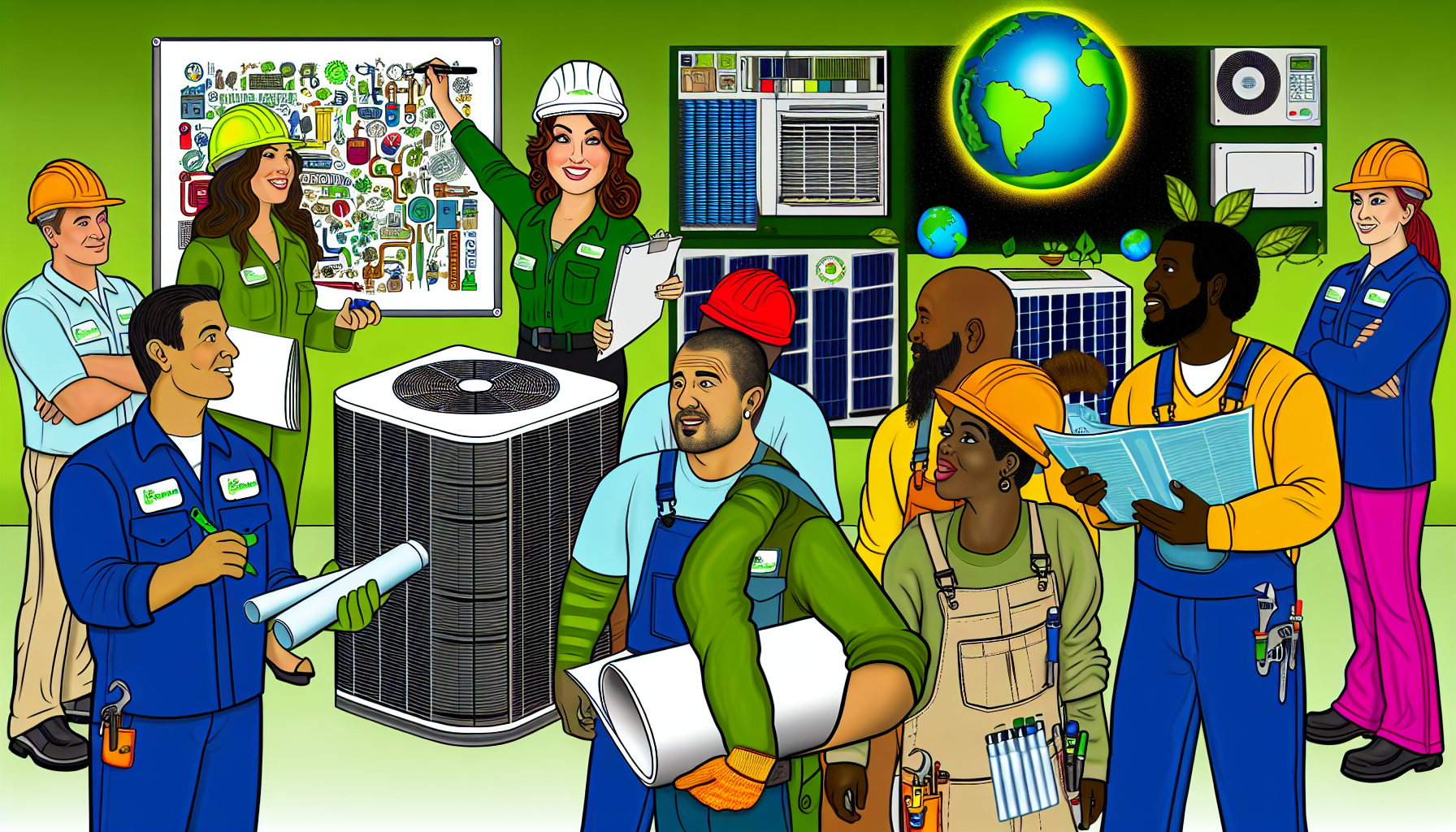Introduction to Sustainable HVAC Practices
As global awareness of environmental issues rises, the focus on sustainable practices has increasingly become pivotal in various industries. The Heating, Ventilation, and Air Conditioning (HVAC) sector is no exception. With buildings accounting for a significant portion of energy consumption, it is essential to consider environmental implications when hiring HVAC professionals. This blog post offers an in-depth exploration of key environmental considerations to maximize sustainability in HVAC hiring decisions.
Energy Efficiency Standards and Certifications
One of the foremost factors in sustainable HVAC is energy efficiency. When looking for HVAC professionals, it is essential to evaluate their familiarity with and commitment to current energy efficiency standards.
- Energy Star Certification: Ensure the HVAC expert is knowledgeable about Energy Star-rated appliances, which meet strict efficiency guidelines set by the U.S. Environmental Protection Agency.
- LEED Accreditation: Consider whether the HVAC candidate has experience with Leadership in Energy and Environmental Design (LEED) certified projects, as this demonstrates a high level of competence in energy-saving practices.
Modern Technological Adaptations
Progressive technological integration is key to energy conservation in the HVAC field. Technological advancements such as smart thermostats, programmable controls, and high-efficiency appliances can significantly cut down energy use and environmental impact.
Use of Eco-Friendly Refrigerants
Modern HVAC systems frequently use refrigerants, which have been a point of concern regarding environmental impact, particularly their contribution to ozone depletion and global warming. It is crucial to hire HVAC professionals who are well-versed in eco-friendly refrigerants such as R-410A and R-32 over traditional refrigerants like R-22.
Refrigerant Management Compliance
Ensure the hired HVAC technician complies with proper refrigerant management protocols and understands the legal requirements when handling and disposing of refrigerants, in accordance with Section 608 of the Clean Air Act.
Indoor Air Quality (IAQ) Considerations
Indoor Air Quality is a significant factor since pollutants inside buildings can be more concentrated than outside. HVAC professionals can greatly influence IAQ.
- High-Efficiency Filters: Ensure your technicians are familiar with high-efficiency particulate air (HEPA) filters and other advanced filtration solutions that can capture a broader range of pollutants.
- Ventilation Optimization: It is crucial to maintain proper ventilation, reducing energy waste while improving air quality by strategically hiring HVAC experts skilled in the latest ventilation best practices.
Renewable Energy Integration
Renewable energy sources are integral to reducing carbon footprints. Candidates skilled in integrating solar panels or geothermal heat pumps into HVAC systems are invaluable for organizations aiming to achieve sustainability goals.
Understanding of Incentives
Professionals with a comprehensive understanding of federal, state, and local incentives for renewable energy integration can offer cost-effective, sustainable HVAC solutions.
Maintenance and Service Life Extension
Regular maintenance can extend the service life of HVAC systems, thereby minimizing their environmental impact. Hiring technicians proficient in routine upkeep can ensure your systems run efficiently for longer periods, reducing waste and resource use.
Lifecycle AssessmentP
Knowledge in assessing the entire lifecycle of an HVAC system is beneficial, as it can help in choosing equipment that not only saves energy but also has a lower overall environmental impact across its lifespan.
Sourcing of Materials and Equipment
Sourcing plays a critical role in environmental sustainability. It is vital to hire HVAC professionals who prioritize environmentally friendly materials and high-quality equipment that’s built to last.
Supply Chain Transparency
Transparency within the supply chain guarantees that the HVAC materials come from responsible sources. Ensure your HVAC hires support this level of ethics and sustainability.
Training and Continuous Education
Staying updated with the latest sustainability trends and techniques in the HVAC industry is essential. It is beneficial to hire contractors who invest in continuous learning and are attuned to green practices.
Professional Development Membership
Hiring HVAC experts who are members of professional bodies, such as the American Society of Heating, Refrigerating and Air-Conditioning Engineers (ASHRAE), ensures that they remain on top of sustainability innovations.
Green HVAC Credentials
Some additional certifications, such as the North American Technician Excellence (NATE), focus on green practices and can serve as a benchmark for skilled sustainable HVAC service providers.
Cost vs. Investment Mindset
While sustainable HVAC solutions may come at a higher upfront cost, emphasize the long-term economical and environmental return on investment. Hiring professionals who can effectively communicate this to stakeholders is key.
Energy Savings Calculations
Hire HVAC specialists skilled in calculating accurate energy savings and ROI for sustainable systems to better plan and justify the investment.
Conclusion
Maximizing sustainability in the HVAC industry requires careful consideration of various environmental factors when hiring professionals. From energy efficiency and eco-friendly refrigerants to renewable energy integration and continuous education, every element plays a part in the broader goal of reducing environmental impact. By focusing on these key considerations, you can contribute to a greener, more sustainable future.
FAQ Section
What should I look for to ensure an HVAC technician is knowledgeable about energy-efficient practices?
Look for certifications such as Energy Star, LEED accreditation, and professional memberships with organizations like ASHRAE, as well as a track record of working with energy-efficient HVAC systems.
Why are eco-friendly refrigerants important in HVAC systems?
Eco-friendly refrigerants are essential because they have reduced impact on the ozone layer and lower global warming potential, making them a more sustainable choice for the environment.
How do renewable energy sources integrate into HVAC systems, and why is this beneficial?
Renewable energy sources, like solar panels or geothermal systems, can be used to power HVAC systems, reducing reliance on fossil fuels and decreasing carbon emissions.
Are there benefits to regular maintenance of HVAC systems in terms of sustainability?
Yes, regular maintenance keeps HVAC systems operating efficiently, reduces energy consumption, and extends the service life of the equipment, thereby reducing environmental waste.
What is the importance of sourcing materials and how does this affect sustainability?
Sourcing sustainable materials ensures that the products used in HVAC systems have a reduced environmental impact, are of higher quality, and often come from responsible and ethical sources.




